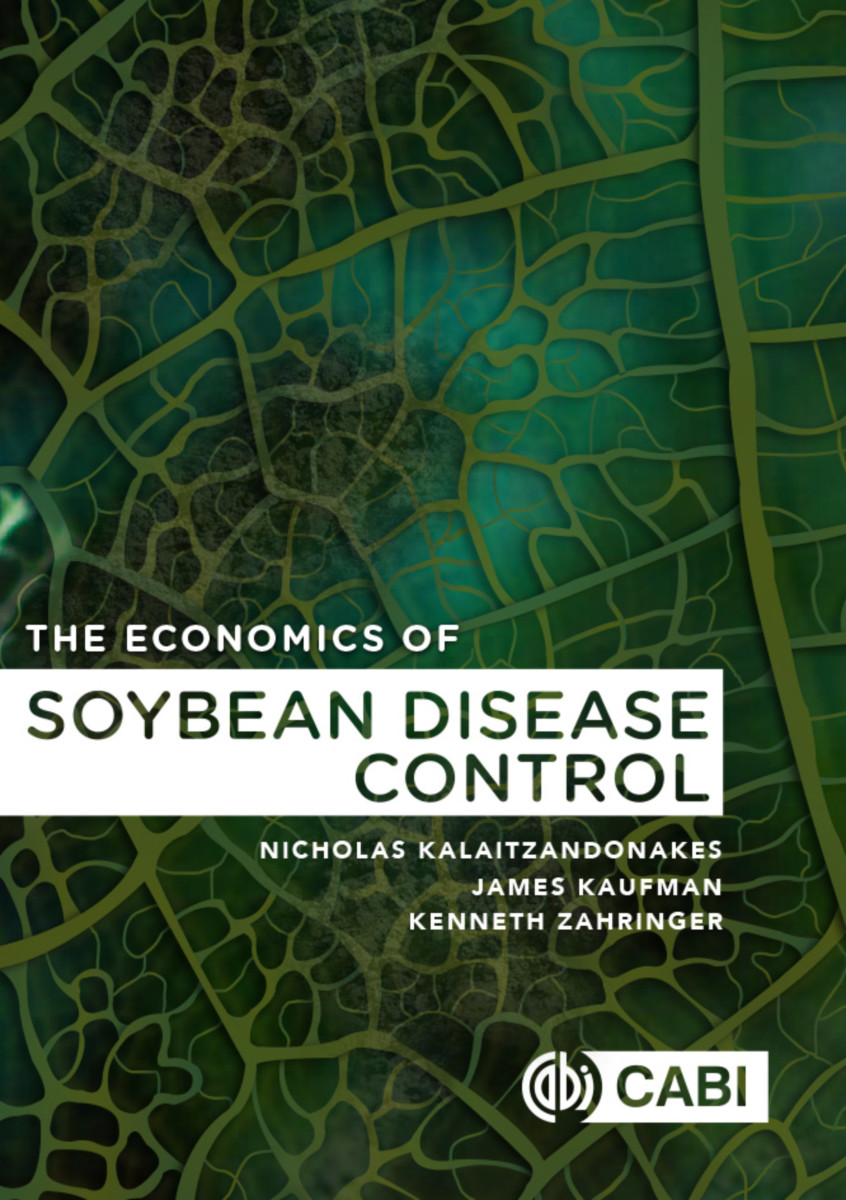The Economics of Soybean Disease Control
- Publisher
CABI - Published
9th May 2019 - ISBN 9781780648088
- Language English
- Pages 200 pp.
- Size 6.75" x 9.25"
Worldwide soybean crop yields can achieve USD$130 billion per year in farm-level sales, but around 13% of these yields are lost to disease. Effective disease management could generate significant economic benefits, and while disease management strategies do exist, their application remains limited among producers, often due to an incomplete understanding of disease incidence and severity, as well as perceived complexities of these strategies and a lack of information regarding success rates.
This book presents an economic perspective on disease control, with an emphasis on producer choice among alternative technologies and potential changes in cropping systems. It provides an overview of global soybean diseases, their economic significance and management, and covers farm-level decision making, economic payoffs of alternative disease practices and key uncertainties. The book also outlines a global economic model that evaluates disease distribution and management implications.
Key features include:
- Extensive empirical case studies of soybean disease control, offering strategies for economically optimal management of diseases such as soybean seedling disease and root rot.
- Analysis of economic factors to guide farm-level decision making.
- Consideration of new technologies in disease management and their potential market-level impacts.
This text is recommended for students and researchers in plant pathology and agricultural economics, as well as professionals in the soybean production industry.
1: Soybeans: The Emergence of a Global Crop
2: Soybean Disease & Production Losses
3: Disease Incidence, Severity, and Conditioning Factors
4: An Economic Framework of Disease Management
5: Expectations of Incidence, Severity and Yield Loss
6: Disease Control Methods and Effectiveness
7: Costs, Profits, and Farm Demand for Disease Control
8: Farm Demand for Innovation in Disease Control
9: The Supply of Inputs for Disease Control
10: Economic Benefits from Innovation
11: Summary and Conclusions
Nicholas Kalaitzandonakes
Nicholas Kalaitzandonakes is the MSMC Endowed Professor of Agribusiness Strategy and the Director of the Economics and Management of Agrobiotechnology Center (EMAC) at the University of Missouri. His research, teaching and outreach focus on the economics and policy of agrifood biotechnology and other agribusiness innovations. Over the past five years, Dr. Kalaitzandonakes has authored articles on the economic and environmental impacts of biotechnology; its impacts on the structure of the agrifood supply chain; on biotech entrepreneurship and industrial development; the impact of biotechnology on international trade; and on biotech regulation. Through an active outreach program, Dr. Kalaitzandonakes advises governments, international organizations, non-profits and Fortune 500 firms on the economics, policies and regulations of agrifood innovation. He is also a member of scientific advising boards for startups, venture capital firms and national research centers involved in the life sciences and has been a member of the US Secretary of Agriculture Advisory Committee on Biotechnology and 21st Century Agriculture (AC21) and the Missouri Governor's Advisory Council for Plant Biotechnology.
James Kaufman
James Kaufman is a project director at University of Missouri-Columbia, who specializes in production economics, economics of new agrifood technologies and impact assessment.
Kenneth Zahringer
No information


